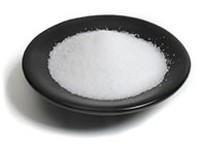 The 2010 US Dietary Guidelines say about half of all Americans, including African Americans and those over 50, should try to reduce sodium levels to 1500 milligrams per day. But a new IOM report now says evidence is not strong enough to recommend that we aim for a diet with sodium below 2300 mg per day.
The 2010 US Dietary Guidelines say about half of all Americans, including African Americans and those over 50, should try to reduce sodium levels to 1500 milligrams per day. But a new IOM report now says evidence is not strong enough to recommend that we aim for a diet with sodium below 2300 mg per day.
And while other organizations such as the American Heart Association, do not agree with this report, one thing is clear: Americans are getting too much sodium.
On average, Americans consume about 3400 mg/sodium per day. AICR’s recommendation is to limit sodium to no more than 2400 mg/day because consuming high levels of salt and salty foods increase risk of stomach cancer
The bottom line is that a diet high in sodium means you’re eating foods with added salt – highly processed foods, fast foods and processed meats like sausage, hot dogs and bacon. And that means you may not be getting enough vegetables, fruit, legumes and other plant based foods known to lower risk for cancer and other chronic diseases.
Here are examples of how much salt is added to canned, boxed and some frozen foods:
- Green Beans: 1/2 cup of fresh green beans contains 3 mg sodium compared to 1 serving of frozen green bean casserole loaded with over 600 mg.
- Vegetable Soup: AICR’s Ten Vegetable Soup has 253 mg sodium per serving; 1 cup canned vegetable soup has 890 mg
- Hamburger: A homemade 1/4 lb burger with cheese & ketchup = just below 600 mg sodium; A Burger King Whopper with Cheese serves up 1450 mg
The IOM committee does agree with other health organizations that Americans are eating too much salt. And they confirm that evidence shows our high salt diet does indeed increase risk of cardiovascular disease (CVD), including stroke and CVD mortality. These important messages should not get lost in the headlines about how too little salt may be unhealthful.
For help on keeping sodium levels low: Cut the Salt, Keep the Flavor





